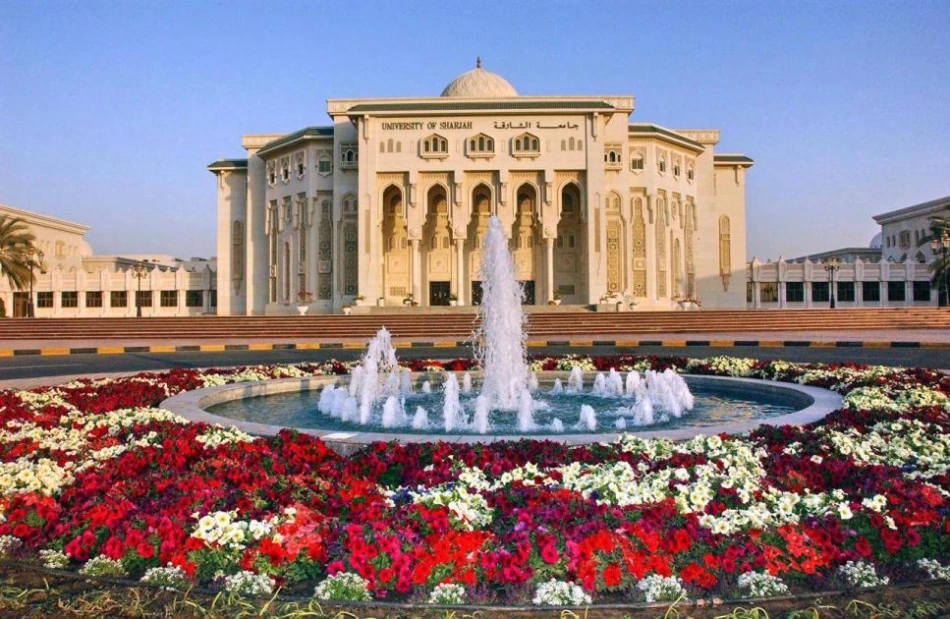
Sharjah University Launches Master's Program in Public Policy, Equipping Future Policymakers
UAE's University of Sharjah Launches Graduate Program to Shape Next Generation of Policy Leaders
The University of Sharjah has unveiled a new Master's in Public Policy program set to begin in September 2025, positioning itself at the forefront of training future government leaders and policy analysts. This strategic academic initiative comes as the UAE continues its ambitious transformation into a knowledge-based economy, requiring sophisticated expertise in governance, strategic planning, and evidence-based decision-making.
Filling a Critical Skills Gap in Gulf Governance
The timing of this program reflects broader regional trends across the Gulf Cooperation Council states, where traditional government structures are rapidly evolving to meet 21st-century challenges. Dr. Youssef Al-Hayek, Acting Dean of the College of Public Policy and Vice President for Academic Affairs, emphasized that the program addresses accelerating governance challenges and institutional decision-making complexities.
"In a world characterized by rapid changes and complex challenges, we aim through this program to qualify students who possess the necessary skills and awareness to deal with these complexities," Al-Hayek stated, highlighting the program's focus on creating leaders capable of implementing science-based institutional change.
Strategic Alignment with UAE Vision 2071
This initiative aligns closely with the UAE's long-term strategic vision, which emphasizes human capital development and institutional excellence. The program's launch follows similar moves by regional competitors like Saudi Arabia's Vision 2030 and Qatar's National Vision 2030, all requiring sophisticated policy expertise to execute complex economic diversification strategies.
Bridging Theory and Practice Through Strategic Partnerships
Unlike traditional academic programs, this master's degree emphasizes practical application through partnerships with federal and local government ministries, regional and international development organizations, and accredited research centers. This collaborative approach mirrors successful models in Singapore and the UAE's own Mohammed Bin Rashid School of Government in Dubai.
The program's design recognizes that effective policy-making in the modern Gulf requires understanding both local cultural contexts and global best practices. Students will engage in real-world projects and training opportunities that prepare them for immediate impact in government roles.
Market Demand and Career Pathways
The program targets multiple career trajectories, including positions in federal and local government ministries, research centers, and advisory roles in decision-making institutions. This diversified approach reflects the UAE's recognition that policy expertise is needed across various sectors, from economic development to social services and environmental planning.
Regional Competition for Policy Talent Intensifies
The University of Sharjah's move comes as Gulf states increasingly compete for qualified policy professionals. The UAE's decision to establish this program domestically reduces reliance on foreign expertise while building local institutional knowledge. This strategy parallels similar initiatives in Saudi Arabia's NEOM project and Qatar's preparation for post-World Cup economic transformation.
For prospective students and career professionals, this program represents an opportunity to enter a high-demand field where analytical skills, cultural understanding, and strategic thinking command premium positions in both public and private sectors.
Long-term Impact on Regional Governance
The program's emphasis on transparency, accountability, and evidence-based decision-making signals the UAE's commitment to governance modernization. As regional governments face increasing complexity in managing diverse populations, economic diversification, and environmental challenges, the demand for sophisticated policy analysis will only grow.
This initiative positions the University of Sharjah as a key player in developing the intellectual infrastructure necessary for the UAE's continued transformation from an oil-dependent economy to a knowledge-based society capable of navigating global challenges while maintaining its competitive edge in the region.
Most Viewed News

 Omar Rahman
Omar Rahman






